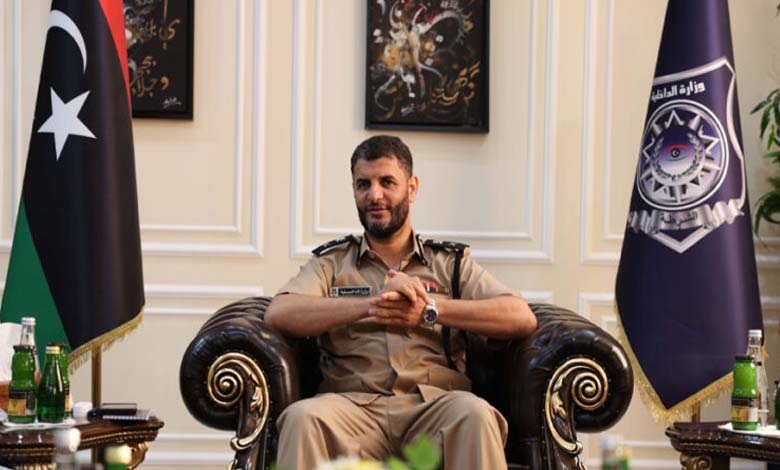Libya Demands Tunisia Extradite Two Individuals Involved in the Assassination of Mliqta

The incident has revealed a major flaw in the Libyan intelligence system, particularly the external security agency, which is considered one of the sensitive bodies.
The outgoing National Unity Government, led by Abdulhamid Dbeibah, has renewed its request to the Tunisian authorities to extradite suspects involved in the attempted assassination of the Chairman of the National Safety Authority, Abdelmajid Mliqta, last June, amid fears that the incident might be the start of a series of political assassinations in Libya amid ongoing security tensions and divisions among state institutions.
Dbeibah discussed with Attorney General Sadiq Al-Sour the measures taken with Tunisia according to the customary protocols of both countries and the continuation of the investigation of citizen Abdulrahman Qaja under the Riyadh agreement on the matter.
Tunisian media reports indicated that the Libyan authorities had asked Tunisia to extradite two individuals accused of the incident without revealing details about the suspects’ identities or how they entered Tunisian territory.
The Office of the Attorney General in Libya had published a statement last Wednesday stating that a meeting had taken place between the Attorney General’s advisor, the Tunisian Minister of Interior Khaled El-Nouri, and the Director General of the Borders and Foreigners Administration during the Mediterranean Migration Forum held in the Libyan capital, Tripoli. The parties discussed the status of judicial procedures related to the extradition of the individuals involved in Mliqta’s murder.
The Attorney General had announced last Tuesday the arrest of two members of the Libyan intelligence service accused of detonating a car bomb on the path taken by the Chairman of the National Safety Authority to assassinate him and pursuing the rest of those involved in the operation, noting that they were out of the country.
The announcement of the involvement of Libyan intelligence members in the attempted assassination of a government official sparked a wide debate about the possibility of future internal eliminations within state agencies due to conflicts among their members.
According to the Attorney General, Al-Sour received a decision from the head of the Libyan intelligence service, Hussein Al-Aib, lifting procedural restrictions against 13 members of the service accused in the assassination case.
Libyan analysts believe that Dbeibah‘s direct involvement in the assassination attempt of his advisor sends several messages, the first being the personal relationship he has with his advisor and confidant, and on the other hand, the direct implication of a sovereign body whose mission is to protect the country from internal and external dangers. The incident revealed a major flaw in the Libyan intelligence system, particularly the external security agency, which is considered one of the sensitive bodies.
Others believe that the incident revealed internal conflicts within the Libyan intelligence service, while some believe it appears to be a settling of scores, especially following leaks behind the scenes of the Libyan scene about Mliqta’s desire to manage the agency with individuals close to him from within the agency.
Tunisia and the five countries of the Arab Maghreb Union are linked by a 1993 judicial and legal cooperation agreement.
-
President of Tunisia Reveals the Motives of the Muslim Brotherhood for Chaos Plan
-
Calls in Libya to Prevent Tunisian Arrest Warrant against Muslim Brotherhood Businessman
In June 2012, the Tunisian government announced the extradition of the last Prime Minister under the late Muammar Gaddafi, Baghdadi Mahmudi, to the Libyan authorities for trial, with guarantees from the Libyan side to protect him from any physical or moral harm and any violation of human rights.
The incident sparked a wide debate in the Tunisian street, and at the time, the Minister of Human Rights and Transitional Justice, Samir Dilou, and the Minister of Justice, Noureddine Bhiri, confirmed at a press conference that the decision to extradite Baghdadi was based on the refugee extradition agreement signed with the Libyan government in 1968.












